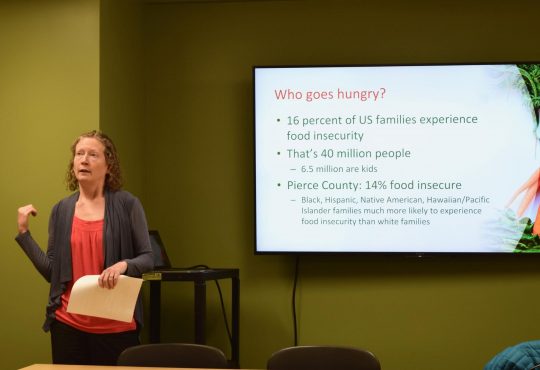On Sept. 21, Troy Anthony Davis spent his last moments staring into the eyes of the MacPhail family. Davis reasserted his innocence, and urged the family to continue the search for the true murderer of the late Officer Mark MacPhail. Moments later, at 11:08 p.m., Davis was injected with lethal poison and executed by the state of Georgia.
Our supposedly civilized society sanctioned the death of a man whose case had too much reasonable doubt to justify his punishment.
Something is wrong here.
In 1989, Davis was convicted of the murder of Officer MacPhail, who was attempting to aid an assaulted homeless man. Neither physical evidence nor any weapon was found linking Davis to the crime. Seven out of the nine witnesses linking Davis to the homicide even recanted their statements by 2010, admitting to being coerced by law enforcement.
According to the “Huffington Post,” Judge William T. Moore stated that Davis had to first cast doubt upon the evidence against him and then give “clear and compelling” proof of his innocence.
Hang on, what?
Since when do Americans have to prove that we are innocent? The famous assertion that makes the American judicial system so respected to this day, “innocent until proven guilty,” is based on the premise that we are assumed innocent as citizens of the United States, and that the burden rests on the courts to prove guilt beyond any reasonable doubt.
The MacPhail family and the community deserve justice for the Officer’s murder, and his legacy also deserves truth. To grant someone a sentence so irreversible as death on the basis of corrupted evidence is equally as heinous as the act of murder itself.
Fortunately, the media has had a positive effect in the courtroom.
In the case of Davis, social networking sites around the world overflowed with condemnation of his so-called “due process.” “Democracy Now”, a daily news program hosted by Amy Goodman, live-streamed the entire Davis trial from outside of the Georgia courthouse on the evening of Sept. 21 and garnered approximately 38,000 viewers in total.
The problem is that we still do not know whether Davis was innocent or not. Thousands of people worldwide protested for Davis’s right—as a long-term death row prisoner with tainted witness accusations—for due process.
However, it remains important to note that the state of Georgia actually executed two men on Sept. 21. White supremacist Lawrence Russell Brewer was put to death on the same night as Davis. His story, however, is different.
The murder was recorded on video in 1998, showing Brewer dragging James Byrd, Jr. (a black man) to his death behind his pickup truck. Even for those who are adamantly against the death sentence, it’s probably extremely difficult to generate sympathy for Brewer and his actions.
Some would say no, that even though Brewer committed an atrocious act that made him appear to the world a racist slug, death is an improper punishment for a civilized society to impose on a civilian.
So what is a country such as ours to do?
We pride ourselves on the principle that every man, woman and child deserves a fair trial, but what do we do in the case of a premeditated and gruesome homicide such as the murder of Byrd, Jr.?
Do we send perpetrators to an isolated island for the rest of their lives?
Do we submit them to torture?
The moral question of capital punishment has yet to be answered by American politicians. Lately, it seems to be an increasingly popular and controversial topic of debate. The policy looks even more uncivilized when examining the types of countries that still use the death penalty as a form of punishment.
According to the “Global Report on Death Penalty,” released by Amnesty International, China has performed the largest amounts of executions in the last year, followed by Iran, North Korea and Yemen. Then, coming in at number five, sits the United States.
These statistics were from 2010. Davis was the 52nd person to be executed in the state of Georgia.
The judicial system in the country that we live in proved to be faulty and incompetent last week. To the approximately 3,260 death row prisoners in the United States at this very moment, whether guilty or not, I hope your voices are heard when the time comes, lest you suffer the same fate as Davis.






